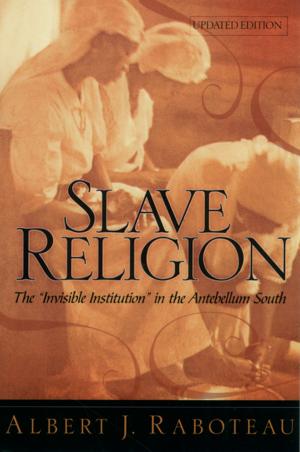Virtually Sacred
Myth and Meaning in World of Warcraft and Second Life
Nonfiction, Social & Cultural Studies, Social Science, Sociology, Marriage & Family, Entertainment, Games, Video & Electronic, Religion & Spirituality| Author: | Robert M. Geraci | ISBN: | 9780199379972 |
| Publisher: | Oxford University Press | Publication: | June 13, 2014 |
| Imprint: | Oxford University Press | Language: | English |
| Author: | Robert M. Geraci |
| ISBN: | 9780199379972 |
| Publisher: | Oxford University Press |
| Publication: | June 13, 2014 |
| Imprint: | Oxford University Press |
| Language: | English |
Millions of users have taken up residence in virtual worlds, and in those worlds they find opportunities to revisit and rewrite their religious lives. Robert M. Geraci argues that virtual worlds and video games have become a locus for the satisfaction of religious needs, providing many users with devoted communities, opportunities for ethical reflection, a meaningful experience of history and human activity, and a sense of transcendence. Using interviews, surveys, and his own first-hand experience within the virtual worlds, Geraci shows how World of Warcraft and Second Life provide participants with the opportunity to rethink what it means to be religious in the contemporary world. Not all participants use virtual worlds for religious purposes, but many online residents use them to rearrange or replace religious practice as designers and users collaborate in the production of a new spiritual marketplace. Using World of Warcraft and Second Life as case studies, this book shows that many residents now use virtual worlds to re-imagine their traditions and work to restore them to "authentic" sanctity, or else replace religious institutions with virtual communities that provide meaning and purpose to human life. For some online residents, virtual worlds are even keys to a post-human future where technology can help us transcend mortal life. Geraci argues that World of Warcraft and Second Life are "virtually sacred" because they do religious work. They often do such work without regard for-and frequently in conflict with-traditional religious institutions and practices; ultimately they participate in our sacred landscape as outsiders, competitors, and collaborators.
Millions of users have taken up residence in virtual worlds, and in those worlds they find opportunities to revisit and rewrite their religious lives. Robert M. Geraci argues that virtual worlds and video games have become a locus for the satisfaction of religious needs, providing many users with devoted communities, opportunities for ethical reflection, a meaningful experience of history and human activity, and a sense of transcendence. Using interviews, surveys, and his own first-hand experience within the virtual worlds, Geraci shows how World of Warcraft and Second Life provide participants with the opportunity to rethink what it means to be religious in the contemporary world. Not all participants use virtual worlds for religious purposes, but many online residents use them to rearrange or replace religious practice as designers and users collaborate in the production of a new spiritual marketplace. Using World of Warcraft and Second Life as case studies, this book shows that many residents now use virtual worlds to re-imagine their traditions and work to restore them to "authentic" sanctity, or else replace religious institutions with virtual communities that provide meaning and purpose to human life. For some online residents, virtual worlds are even keys to a post-human future where technology can help us transcend mortal life. Geraci argues that World of Warcraft and Second Life are "virtually sacred" because they do religious work. They often do such work without regard for-and frequently in conflict with-traditional religious institutions and practices; ultimately they participate in our sacred landscape as outsiders, competitors, and collaborators.















